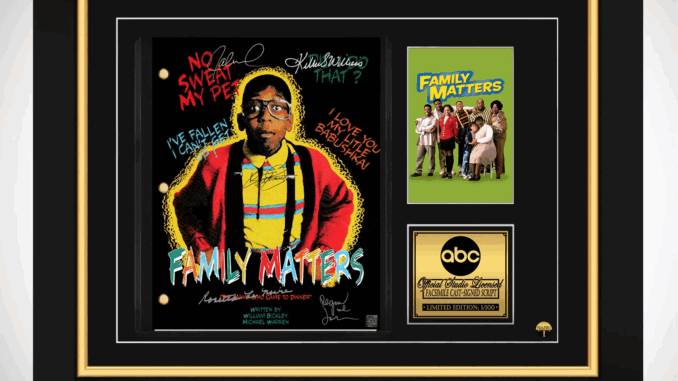
Family Matters isn’t just another sitcom from the ’90s—it’s a cultural milestone that shaped how Black families were portrayed on television and influenced generations of viewers across the globe. From the quirky genius Steve Urkel to the warm and relatable Winslow family, the show broke stereotypes and brought laughter, life lessons, and love into living rooms for nearly a decade. This article dives deep into the legacy of Family Matters and why it remains a cultural phenomenon decades after its finale.
The Birth of a Classic Sitcom
A Spin-off with a Big Impact
Family Matters began as a spin-off of the show Perfect Strangers, focusing on the Winslow family in Chicago. But what started as a supporting role quickly blossomed into its own powerful platform. The sitcom ran for nine seasons, becoming one of the longest-running sitcoms centered on a Black family.
Breaking Down Stereotypes
Portraying a Strong, Middle-Class Black Family
At a time when Black families were rarely depicted on TV outside of stereotypes, Family Matters presented the Winslows as a hardworking, middle-class family. Carl Winslow’s role as a police officer and Harriette as a working mother showcased positive and relatable role models.
Humanizing Characters Beyond Color
The show gave each character depth — from the smart and ambitious Laura Winslow to the comedic relief Steve Urkel — creating relatable personalities that went beyond racial identity, making the family’s experiences universal.
Steve Urkel: The Accidental Icon
How a Side Character Took Center Stage
Originally intended as a one-time character, Steve Urkel quickly became the show’s breakout star. His nerdy catchphrases, clumsy antics, and lovable innocence made him a household name. Urkel’s popularity brought in viewers who might not have otherwise tuned in, expanding the show’s reach.
Cultural Impact of Urkel
Urkel influenced fashion, slang, and comedy. His suspenders and oversized glasses became symbols of ’90s pop culture, and phrases like “Did I do that?” are still recognized today. Urkel’s character opened doors for quirky, non-traditional protagonists on television.
Social Issues with a Light Touch
Tackling Racism, Class, and Family Dynamics
While primarily a comedy, Family Matters didn’t shy away from addressing serious social issues. Episodes explored racism, economic challenges, and family struggles, all while maintaining humor and heart. This balance made the show both entertaining and meaningful.
Influence on Future Black TV Shows
Paving the Way for Representation
Family Matters helped pave the way for future shows with Black leads by proving that audiences were hungry for diverse, authentic stories. Its success showed networks that Black families could be central characters without being defined by hardship or stereotype.
Inspiration for New Generations
Countless actors, writers, and creators cite Family Matters as an inspiration for their own careers and storytelling, cementing the show’s place in the entertainment industry’s history.
Merchandise and Spin-offs
Expanding the Brand
The show’s popularity extended into merchandise like toys, clothing, and video games, embedding Family Matters further into 90s culture. Though it didn’t have direct spin-offs, it influenced many sitcoms and family-centered series that followed.
The Enduring Fanbase
Why Fans Still Celebrate the Winslows
Despite ending over 20 years ago, Family Matters retains a dedicated fanbase. Streaming platforms have introduced the show to younger audiences, and reunion interviews and social media fan pages keep the spirit alive. Nostalgia, combined with timeless themes, fuels ongoing love for the Winslows.
Lessons From ‘Family Matters’
Family, Humor, and Heart
At its core, Family Matters taught viewers the importance of family unity, kindness, and laughter. It showed that no matter your quirks or challenges — even if you’re a lovable nerd like Urkel — family love is unconditional.
Conclusion
The legacy of Family Matters extends far beyond its nine-season run. It transformed television by presenting a Black family with depth, humor, and heart, paving the way for future generations to see themselves authentically on screen. Its cultural imprint is undeniable, and it continues to inspire and entertain, proving that great storytelling transcends time.
FAQs
1. Why is Family Matters considered a cultural phenomenon?
Because it broke racial stereotypes, presented a relatable Black family, and introduced iconic characters like Steve Urkel, impacting generations of viewers.
2. How did Steve Urkel become so popular?
Originally a minor character, his quirky personality and catchphrases resonated widely, making him the show’s standout star.
3. Did Family Matters address social issues?
Yes, it tackled topics like racism and family struggles while balancing humor and heart.
4. Has Family Matters influenced other TV shows?
Absolutely. It paved the way for more diverse and authentic Black family representation on television.
5. Is Family Matters still available to watch today?
Yes, many streaming platforms offer the series, helping new generations discover the Winslows.
